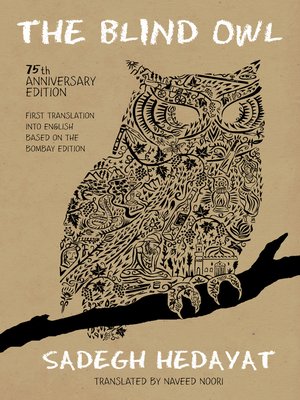
Sign up to save your library
With an OverDrive account, you can save your favorite libraries for at-a-glance information about availability. Find out more about OverDrive accounts.
Find this title in Libby, the library reading app by OverDrive.



Search for a digital library with this title
Title found at these libraries:
| Library Name | Distance |
|---|---|
| Loading... |
Widely regarded as Sadegh Hedayat's masterpiece, the Blind Owl is the most important work of literature to come out of Iran in the past century. On the surface this work seems to be a tale of doomed love, but with the turning of each page basic facts become obscure and the reader soon realizes this book is much more than a love story. Although the Blind Owl has been compared to the works of the Kafka, Rilke and Poe, this work defies categorization. Lescot's French translation made the Blind Owl world-famous, while D.P. Costello's English translation made it largely accessible. Sadly, this work has yet to find its way into the English pantheon of Classics. This 75th anniversary edition, translated by award-winning writer Naveed Noori and published in conjunction with the Hedayat Foundation, aims to change this and is notable for a number of firsts:
"....There are indeed marked differences between Costello's and Noori's translations. As Noori indicates, his attempt to preserve the overabundance of dashes gives the reader a more immediate sense of the narrator's agitation...The first sentence flows on in Noori's translation, piling sensation upon sensation never allowing us to pause and catch our breath or separate out the images from the sensations. In his discussion of the relationship between his translation and Costello's, Noori also draws on translation theory and sees Costello's focus on the fluidity of the text in English as a "domestication" of Hedayat's original. Noori's new English translation and his preface are a welcome addition and will no doubt draw the attention of scholars interested in Hedayat's works. The close textual and comparative analysis of the type Noori offers marks a new and long-overdue critical approach to the translation of the most celebrated work of modern Persian prose." -Professor Nasrin Rahimieh in Middle Eastern Literatures







